-
 Bitcoin
Bitcoin $117700
-1.00% -
 Ethereum
Ethereum $4458
-3.91% -
 XRP
XRP $3.119
0.14% -
 Tether USDt
Tether USDt $1.001
-0.02% -
 BNB
BNB $836.6
-1.56% -
 Solana
Solana $189.5
-3.90% -
 USDC
USDC $0.9998
-0.02% -
 Dogecoin
Dogecoin $0.2335
1.29% -
 Cardano
Cardano $0.9642
1.51% -
 TRON
TRON $0.3539
-1.19% -
 Hyperliquid
Hyperliquid $47.41
-1.84% -
 Chainlink
Chainlink $21.92
-3.28% -
 Stellar
Stellar $0.4286
-0.23% -
 Sui
Sui $3.724
-3.29% -
 Bitcoin Cash
Bitcoin Cash $594.8
-0.78% -
 Ethena USDe
Ethena USDe $1.001
0.04% -
 Hedera
Hedera $0.2501
-2.06% -
 Avalanche
Avalanche $23.96
-4.87% -
 Litecoin
Litecoin $119.0
-2.32% -
 Toncoin
Toncoin $3.473
0.82% -
 UNUS SED LEO
UNUS SED LEO $9.596
0.17% -
 Shiba Inu
Shiba Inu $0.00001301
-0.39% -
 Uniswap
Uniswap $11.03
-0.25% -
 Polkadot
Polkadot $3.935
-2.62% -
 Dai
Dai $1.000
0.01% -
 Bitget Token
Bitget Token $4.564
-1.76% -
 Cronos
Cronos $0.1512
-4.11% -
 Ethena
Ethena $0.7306
-1.09% -
 Pepe
Pepe $0.00001087
-2.68% -
 Aave
Aave $300.2
-4.00%
How to avoid common mistakes in Ethereum wallet transfers?
Double-check Ethereum addresses, select the correct network, and pay sufficient gas fees to avoid irreversible transaction errors; prioritize strong security practices and reputable platforms to protect your ETH and tokens.
Mar 25, 2025 at 07:56 pm
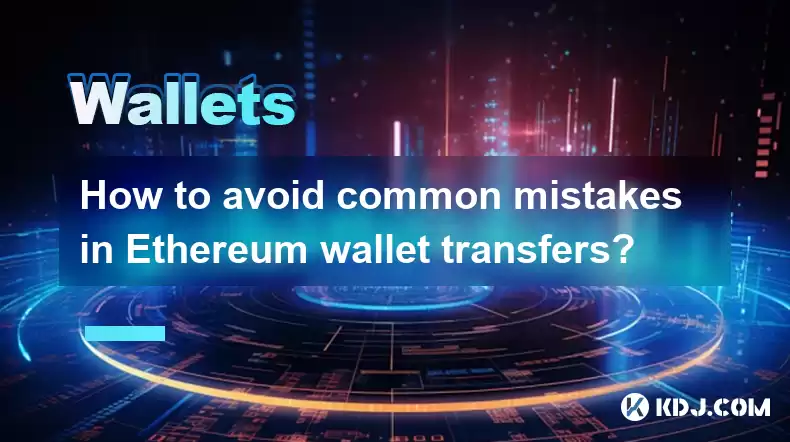
How to Avoid Common Mistakes in Ethereum Wallet Transfers
Ethereum, a leading blockchain platform, facilitates fast and efficient transactions. However, the decentralized nature and technical complexities can lead to errors during wallet transfers. Understanding these pitfalls and implementing preventative measures is crucial for securing your ETH and ERC-20 tokens. This article outlines common mistakes and provides solutions to avoid them.
Understanding Ethereum Addresses
One of the most frequent errors is mistyping the recipient's Ethereum address. A single incorrect character renders the transaction irrecoverable. Always double, and even triple, check the address before confirming the transaction. Use copy-paste functionality to minimize manual entry errors. Never rely solely on QR codes; manually verify the pasted address.
Network Selection
Ethereum operates on multiple networks, most notably the mainnet (Ethereum) and various testnets. Sending ETH to the wrong network is a common mistake. Ensure your wallet is connected to the correct network before initiating the transfer. Testnet ETH is worthless on the mainnet, and vice-versa. Always verify the network selected in your wallet interface.
Gas Fees and Transaction Confirmation
Gas fees are the transaction fees paid to miners for processing transactions. Insufficient gas can lead to failed transactions, resulting in the loss of your funds. Always check the estimated gas fee before sending and adjust accordingly based on network congestion. Similarly, ensure you understand the confirmation time; transactions might take some time to process, especially during peak network activity.
Private Key Management
Your private key is the password to your Ethereum wallet. Losing or compromising it means losing access to your funds. Never share your private key with anyone. Use strong, unique passwords and consider using hardware wallets for enhanced security. Avoid storing private keys in easily accessible locations like text files on your computer.
Smart Contract Interactions
Many Ethereum transactions involve interacting with smart contracts. These contracts can be complex, and errors in interacting with them can lead to loss of funds. Thoroughly research any smart contract before interacting with it. Understand the contract's functionality and ensure you are using the correct function calls and inputs.
Phishing Scams and Malware
Be wary of phishing scams and malware that can steal your private keys. Only download wallets from official sources. Avoid clicking on suspicious links and be cautious of unsolicited messages requesting your private key or seed phrase. Keep your operating system and software updated to minimize vulnerability to malware.
Using Reputable Exchanges and Wallets
Choosing reputable exchanges and wallets is paramount. Research the platform's security measures and reputation before entrusting your funds. Look for platforms with two-factor authentication (2FA) and other security features. Avoid using unknown or poorly reviewed platforms.
Double-Checking Transaction Details
Before confirming any transaction, meticulously review all details. Verify the recipient's address, the amount of ETH being sent, and the gas fee. Take your time and avoid rushing the process. A moment of caution can save you from irreversible losses.
Understanding ERC-20 Tokens
Ethereum supports ERC-20 tokens, which are essentially digital assets built on the Ethereum blockchain. Ensure you understand the difference between ETH and ERC-20 tokens. Sending ERC-20 tokens requires interacting with the token's contract, which might have specific instructions.
Backing Up Your Wallet
Regularly back up your wallet. This is crucial in case your device is lost, stolen, or damaged. Store your backup securely and in multiple locations. Understanding how to recover your wallet from a backup is also essential. Different wallets have different backup methods.
Frequently Asked Questions:
Q: What happens if I send ETH to the wrong address?
A: Transactions sent to the wrong address are generally irreversible. The recipient of the funds will have complete control over them.
Q: Can I recover ETH sent to the wrong address?
A: Generally no. There are very few exceptions, and recovery is usually not feasible.
Q: What if I sent ETH with insufficient gas?
A: The transaction will likely fail, and your ETH will remain in your wallet. You will, however, lose the gas you initially paid.
Q: How can I avoid phishing scams?
A: Be cautious of unsolicited emails, messages, or links. Only download wallets from official websites. Use strong passwords and enable 2FA.
Q: What is the best way to store my private key?
A: A hardware wallet provides the highest level of security. Avoid storing private keys in digital files or easily accessible locations.
Q: What are the risks of using an unknown exchange?
A: Unknown exchanges may be less secure, have poor customer support, or even be fraudulent. This increases the risk of losing your funds.
Q: How can I verify the authenticity of a smart contract?
A: Thoroughly audit the contract code, check its reputation within the community, and understand its functionality before interacting with it. Look for reputable audits performed by third-party security firms.
Q: What should I do if I suspect my wallet has been compromised?
A: Immediately change your passwords, contact your exchange or wallet provider, and secure your funds if possible. Monitor your account for unauthorized activity.
This information is for educational purposes only and should not be considered financial advice. Always conduct your own thorough research before making any decisions regarding cryptocurrency.
Disclaimer:info@kdj.com
The information provided is not trading advice. kdj.com does not assume any responsibility for any investments made based on the information provided in this article. Cryptocurrencies are highly volatile and it is highly recommended that you invest with caution after thorough research!
If you believe that the content used on this website infringes your copyright, please contact us immediately (info@kdj.com) and we will delete it promptly.
- Kazakhstan's Crypto Leap: Bitcoin ETF and Central Asia's Digital Finance Future
- 2025-08-13 12:45:19
- BlockDAG Presale Blazes Past $371M: Fundraising Frenzy Fuels Crypto Sensation
- 2025-08-13 13:05:21
- Meme Coins: Chasing the 2025 Surge – Which Will Moonshot?
- 2025-08-13 10:25:23
- Bitcoin's Wild Ride: Rally, Pullback, and What's Next
- 2025-08-13 10:25:23
- Bitcoin, Bitmax, and Institutional Demand: A New Era of Crypto Investment
- 2025-08-13 10:45:12
- Solana, ROAM, and Airdrops: What's the Buzz in 2025?
- 2025-08-13 11:35:13
Related knowledge
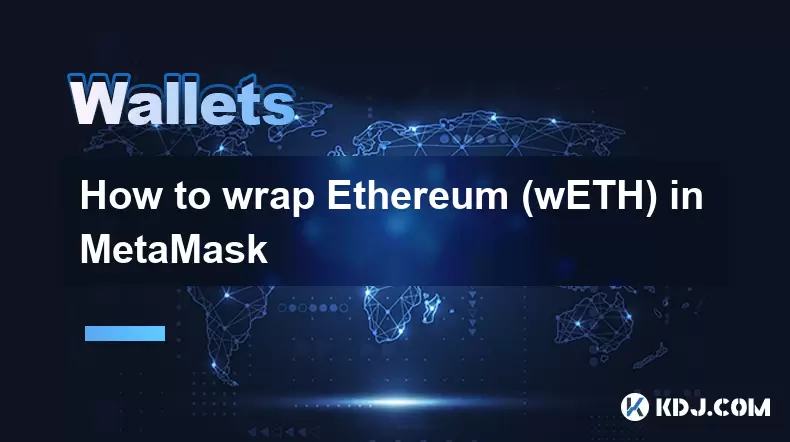
How to wrap Ethereum (wETH) in MetaMask
Aug 13,2025 at 11:36am
Understanding Wrapped Ethereum (wETH)Wrapped Ethereum (wETH) is a tokenized version of native Ethereum (ETH) that conforms to the ERC-20 standard, ena...

How to manage your portfolio in Exodus wallet
Aug 08,2025 at 10:07pm
Understanding the Exodus Wallet InterfaceThe Exodus wallet is a non-custodial cryptocurrency wallet that supports a wide range of digital assets. When...
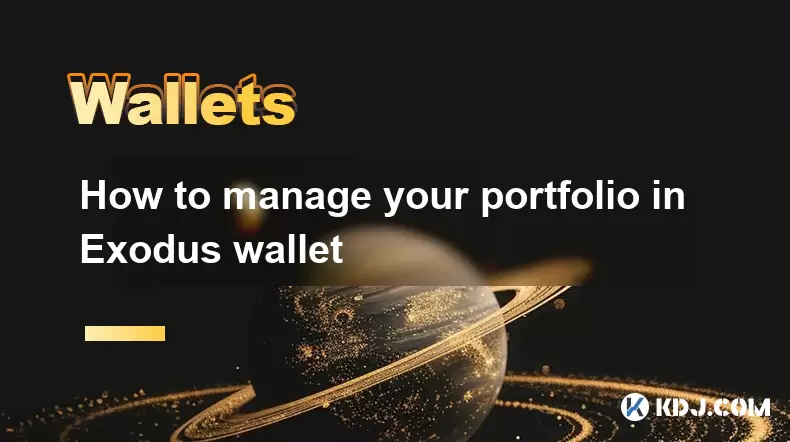
How to manage your portfolio in Exodus wallet
Aug 13,2025 at 11:35am
Understanding the Exodus Wallet InterfaceThe Exodus wallet is a non-custodial cryptocurrency wallet that supports a wide range of digital assets. Upon...

How to reset your MetaMask password
Aug 08,2025 at 01:28pm
Understanding the MetaMask Password Reset ProcessMany users confuse the MetaMask password with the seed phrase or private key, but they serve differen...
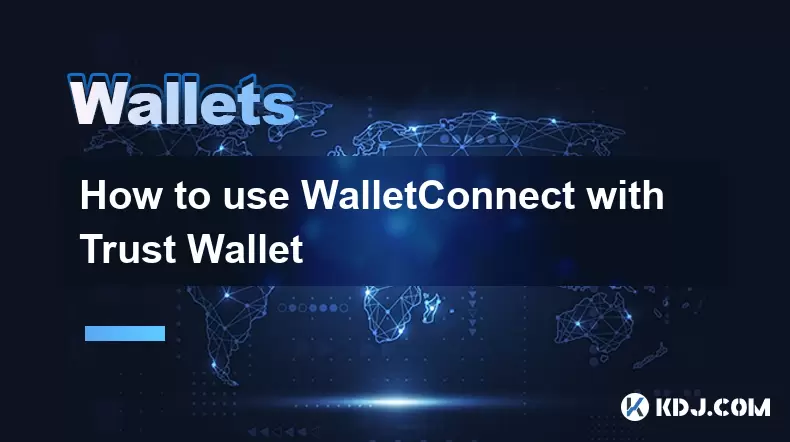
How to use WalletConnect with Trust Wallet
Aug 13,2025 at 01:07am
What Is WalletConnect and Why It Matters for Trust Wallet UsersWalletConnect is an open-source protocol that enables secure communication between dece...
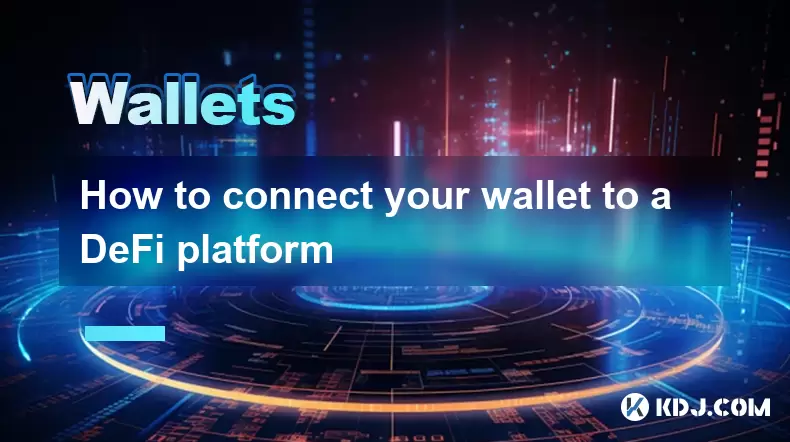
How to connect your wallet to a DeFi platform
Aug 13,2025 at 11:36am
Understanding Wallet Compatibility with DeFi PlatformsBefore connecting your wallet to any DeFi platform, it's essential to ensure your wallet is comp...

How to wrap Ethereum (wETH) in MetaMask
Aug 13,2025 at 11:36am
Understanding Wrapped Ethereum (wETH)Wrapped Ethereum (wETH) is a tokenized version of native Ethereum (ETH) that conforms to the ERC-20 standard, ena...

How to manage your portfolio in Exodus wallet
Aug 08,2025 at 10:07pm
Understanding the Exodus Wallet InterfaceThe Exodus wallet is a non-custodial cryptocurrency wallet that supports a wide range of digital assets. When...

How to manage your portfolio in Exodus wallet
Aug 13,2025 at 11:35am
Understanding the Exodus Wallet InterfaceThe Exodus wallet is a non-custodial cryptocurrency wallet that supports a wide range of digital assets. Upon...

How to reset your MetaMask password
Aug 08,2025 at 01:28pm
Understanding the MetaMask Password Reset ProcessMany users confuse the MetaMask password with the seed phrase or private key, but they serve differen...

How to use WalletConnect with Trust Wallet
Aug 13,2025 at 01:07am
What Is WalletConnect and Why It Matters for Trust Wallet UsersWalletConnect is an open-source protocol that enables secure communication between dece...

How to connect your wallet to a DeFi platform
Aug 13,2025 at 11:36am
Understanding Wallet Compatibility with DeFi PlatformsBefore connecting your wallet to any DeFi platform, it's essential to ensure your wallet is comp...
See all articles

























































































